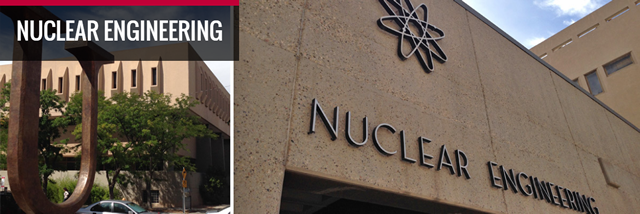
Nuclear Engineering ETDs
Publication Date
9-3-2010
Abstract
The use of cylindrical solid-crystal detectors for the detection and removal of gamma-emitting sources has become a common practice for the clean-up of radiological contaminated sites. It is often difficult to determine the capability of detecting a sub-surface source without performing experimental studies due to the large variation in detector types, source energy, and attenuating media. Furthermore, significant cost savings can be evident when the source is localized because time and the amount of material to be removed are reduced. The first part of this thesis presents a method to determine the minimal detectable limits of a sub-surface source using multiple gridded measurements. The method uses data simulated with the Los Alamos Monte Carlo N-Particle transport code (MCNPX) for detector efficiency calculations. As a necessary supplement to the process, a program was written to automate all MCNPX simulations by modifying input cards and recording the results for all required scenarios. In this work, simulated experiments were performed using Cs-137 and Na-22 in air and soil media to demonstrate the method. The second part of this thesis addresses the problem of source localization. By using a mapping of expected detector responses as a function of source location, the ratios of multiple detector measurements are fit to MCNPX simulated data. From the fit, the lateral position, depth, and activity of the source within an attenuating medium are extracted. As with the first part of this thesis, the detectors are non-collimated to maintain high detection efficiency. The method is intended to be straightforward yet effective to allow real-time localization of sources. The method is a necessary conceptual step away from triangulation since real detectors have non-isotropic efficiency and real sources are commonly attenuated. Several experiments were performed using Cs-137 and Na-22 in both air and soil media to verify the method.
Sponsors
Environmental Restoration Group, Inc.
Document Type
Thesis
Language
English
Degree Name
Nuclear Engineering
Level of Degree
Masters
Department Name
Nuclear Engineering
First Committee Member (Chair)
Cooper, Gary
Second Committee Member
Busch, Robert
Recommended Citation
Alecksen, Tyler. "Novel techniques for the detection and localization of attenuated gamma-ray sources." (2010). https://digitalrepository.unm.edu/ne_etds/25
